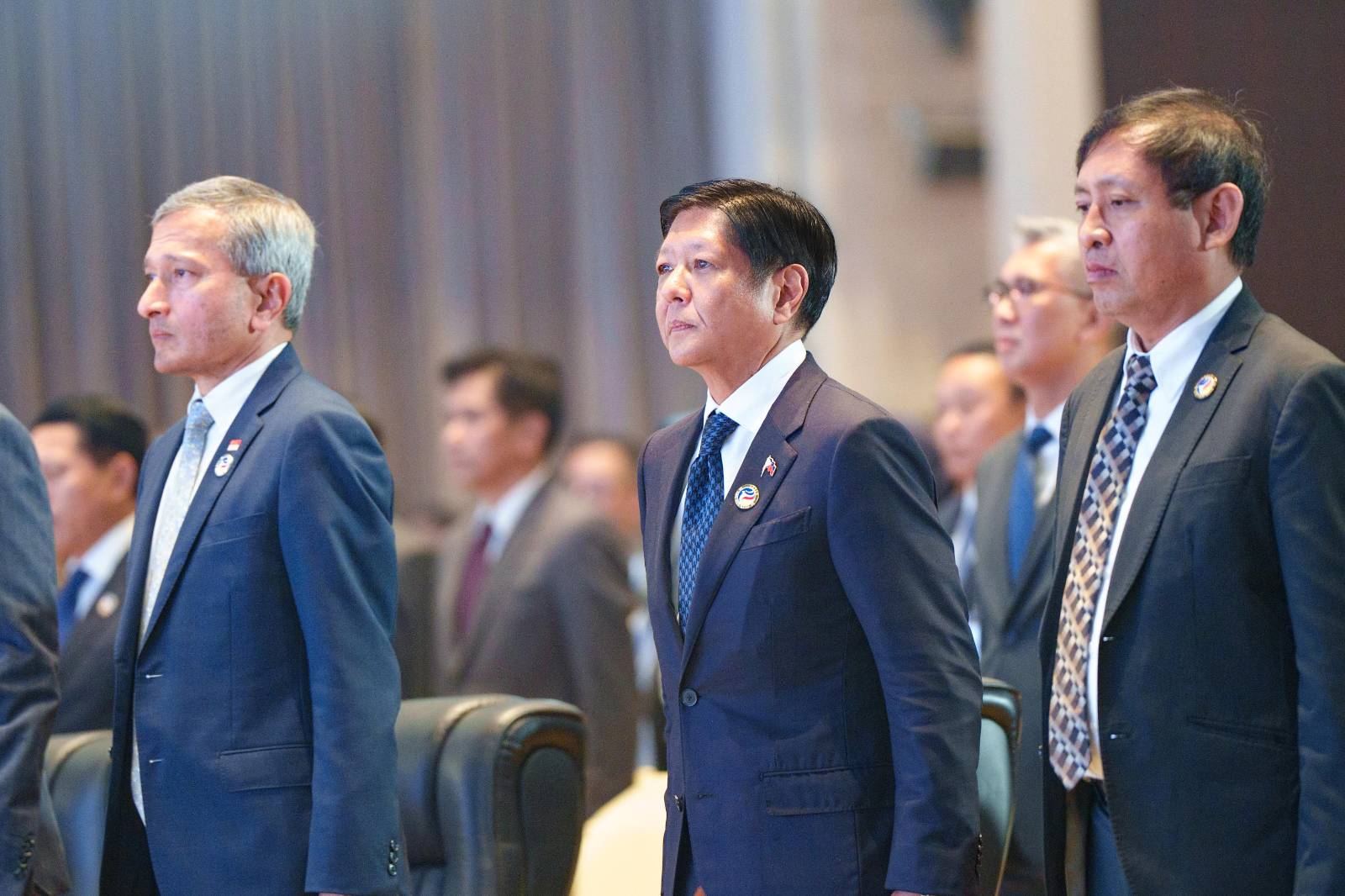Marcos: Up to China to accelerate COC talks
At A Glance
- The idea of a sea code was first agreed between ASEAN and China in 2002 but the formal process of creating one only started in 2017. The bloc aims to conclude COC talks in 2026, the year when Manila hosts the ASEAN Summit.
Amid the continued call for a binding Code of Conduct on the South China Sea, President Marcos said the ball is now in China's court, saying it has always been the Association of Southeast Asian Nations (ASEAN) that has been pushing for it.

"I think the onus is now on China to accelerate those talks. ASEAN has been waiting for a long time," Marcos said in a media interview on the sidelines of the 44th and 45th ASEAN Summit and Related Summits in Vientiane, Laos, on Friday, Oct 11.
"Every single day we push for the conclusion of COC because... it will lay down the rules for everyone to follow and it will stabilize the situation," he added.
The idea of a sea code was first agreed between ASEAN and China in 2002 but the formal process of creating one only started in 2017. The bloc aims to conclude COC talks in 2026, the year when Manila hosts the ASEAN Summit.
According to the President, the Philippines has been pushing for speedy COC negotiations at every opportunity.
"In fact, in almost every one of my interventions here at this ASEAN Summit, we’ve mentioned that and said that the solution for now to this is—well, no, not for now—the solution, in the end, will be to have a COC," he said.
"We have to accelerate the negotiations. We have to define our terms already as quickly as possible so we can talk about the issues. That's a very important part of our argument," he added.
On the second day of the ASEAN Summit in Laos, President Marcos called on the ASEAN member states to fast-track the ASEAN-China COC to advance meaningful progress amid China’s continued aggression and harassment in Philippine waters.
“In our view, there should be more urgency in the pace of the negotiations of the ASEAN-China Code of Conduct,” he said.
He emphasized that “core elements of the COC, such as the milestone issues of geographic scope, the relationship between the COC and DOC, and its legal nature to this day remain outstanding.”
The President also stood firm that “the definition of a concept as basic as ‘self-restraint’ does not yet enjoy consensus.”
“It is time that we tackle these milestone issues directly so we can make substantive progress moving forward,” Marcos said.